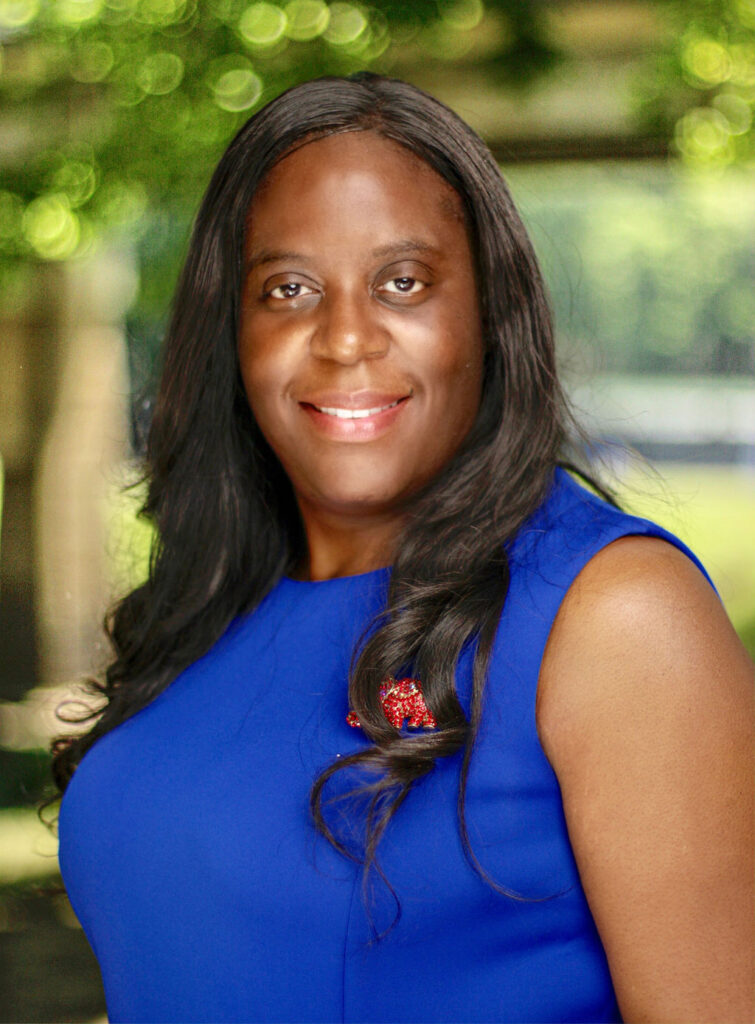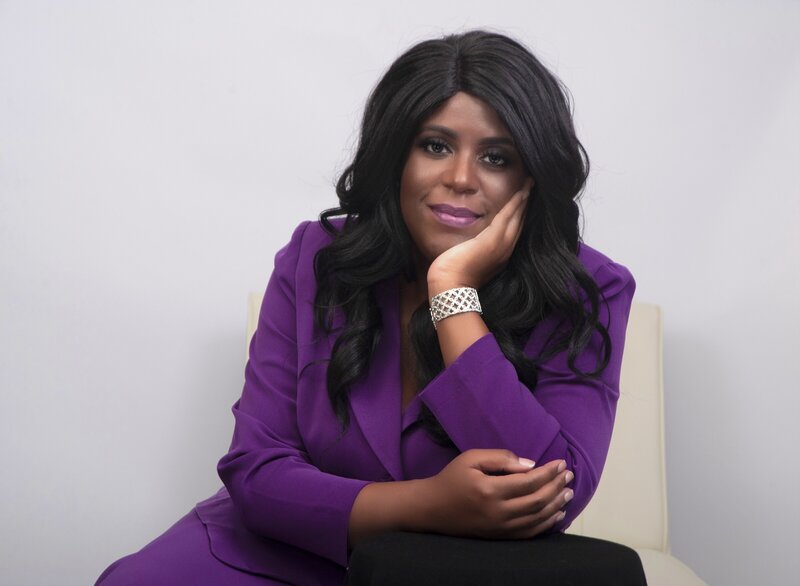September 22, 2023


Table of Contents
If you ever felt overwhelmed from catastrophic thinking, you understand how powerless it feels. In a world full of uncertainties, challenges, and high expectations, it’s easy to fall into patterns of thinking that paint the worst-case scenario. We’ve all been there: making a minor mistake at work and immediately thinking it will lead to being fired, or imagining an upcoming presentation will be a total disaster before it even begins. This type of thinking is known as “catastrophic thinking,” and it can have profound effects on both our confidence and our career trajectory. But, like any negative pattern, it’s something that can be managed and even reversed. Here’s how.
Understanding Catastrophic Thinking
Catastrophic thinking is the tendency to imagine the worst possible outcome in any given situation. It’s like an overactive imagination that’s working against you rather than for you. It’s going beyond the normal worries and concerns we all have, and instead imagining the absolute worst-case scenario.
For instance, consider you forgot to attach a document to an email you sent to your boss. Instead of seeing it as a minor oversight, you immediately begin to think that this mistake might cost you your job. Your heart races, and anxiety takes hold. This is catastrophic thinking in action.
The Impact on Confidence and Careers
When we’re constantly expecting the worst, our confidence takes a hit. We start doubting our abilities, believing that we’re bound to fail or that we’re inherently flawed. Over time, this can lead to a vicious cycle: lack of confidence leads to poorer performance, which then reaffirms our catastrophic thoughts.
Moreover, these thinking patterns can hinder our career advancement. If we’re always anticipating failure, we might avoid taking on new challenges or responsibilities, missing out on opportunities for growth. We might also become overly cautious or hesitant, traits which can hold us back in fast-paced work environments.
Beyond individual performance, catastrophic thinking can affect interpersonal relationships at work. If we’re always expecting the worst, we might misinterpret colleagues’ comments or actions, assuming they have negative intentions. This can lead to unnecessary conflicts and strain professional relationships.




Also read: Case Study: A Doctor’s Journey to Overcome Anxiety
Also read: Catastrophic Thinking: How to Recognize It & Why It Happens
Also read: Face Your Fears and Gain Control of Your Life
How to Stop Catastrophic Thinking
Recognizing and addressing catastrophic thinking is crucial for our well-being and professional success. Here are three steps to stop this negative pattern:
- Recognize it for what it is. The first step to managing any problem is recognizing it exists. If you often find yourself jumping to worst-case scenarios, take a moment to reflect on these thoughts. Are they realistic? Are they based on evidence? In many cases, upon closer examination, you’ll find that these fears are baseless. If you’re unsure whether you’re experiencing catastrophic thinking, seeking guidance, such as from an anxiety coach, can be beneficial.
- Focus on the positive. Once you’ve recognized a catastrophic thought, challenge it by intentionally thinking about more realistic or even best-case scenarios. Instead of assuming your boss will be angry about a mistake, consider the possibility that they might appreciate your accountability and the proactive steps you take to rectify the situation. Over time, deliberately focusing on positive outcomes can help rewire your brain to be less inclined toward catastrophic thinking.
- Stop dwelling. It’s natural to worry, but obsessing over negative thoughts only gives them more power. If there’s nothing you can do about a situation, ruminating on it won’t help. Instead, allow yourself to acknowledge the worry and then distract yourself with another activity. Techniques such as mindfulness can be instrumental in staying present and avoiding the spiral of catastrophic thinking.




Final Thoughts
In conclusion, while catastrophic thinking can be a challenge to manage, with awareness and intentional efforts, it’s possible to break this negative cycle. By doing so, we not only boost our confidence but also open up new pathways for success in our careers. Remember, every challenge we face also presents an opportunity for growth. Embracing a more balanced and positive mindset can be the key to unlocking these opportunities.
If you’re ready to take the first step, schedule a free 30-minute Career Solution Call today. I can help you identify and overcome your catastrophic thinking patterns, develop a more positive mindset, and create a plan to achieve your career goals.
Also, you may find it helpful to check out my YouTube video below about 5 Keys To Overcome Undermining & Self-sabotaging Yourself.
Was this helpful? Let me know in the comments below!
5 Keys to Overcome Undermining & Self-Sabotaging Yourself at Work Youtube Video
RECOMMENDED FURTHER READING AND RESOURCES**
- “I’m Not Yelling: A Black Woman’s Guide to Navigating the Workplace (Successful Black Business Women)“, Elizabeth Leiba.
- “Crucial Conversations: Tools for Talking When Stakes Are High” by Kerry Patterson, Joseph Grenny, Ron McMillan, and Al Switzler.
- “Influence: The Psychology of Persuasion” by Robert B. Cialdini.
- “How to Win Friends and Influence People” by Dale Carnegie.
- “Lean In: Women, Work, and the Will to Lead” by Sheryl Sandberg.
- “The No Asshole Rule: Building a Civilized Workplace and Surviving One That Isn’t” by Robert I. Sutton.
- “The Memo“, by Minda Harts.
- “Quiet: The Power of Introverts in a World That Can’t Stop Talking” by Susan Cain.
- Unleash your career potential with our free library of resources. Access our Career Resource Library and start your journey to a more fulfilling career.


Twanna Carter, PhD, ICF Professional Certified Coach (PCC), is a career coach and relationship coach for Twanna Carter Professional & Personal Coaching, LLC. She is a career coach dedicated to empowering Black women leaders, helping them achieve their career goals. With more than 20+ years of experience, Dr. Twanna is recognized as an expert in leadership, personal development, business strategy, career development, and lifestyle balance. Helping professional women navigate change and uncertainty by providing them with the tools and strategies they need to be successful. Schedule a free 30-Minute Career Solution Call today.
Read my latest blogs…
- Why Executive Coaching Works for Black Women ExecutivesHow the Thrive Beyond Survival V.I.P. Framework™ Creates the Shift from Stuck to Thriving “You’ve checked every box. Degrees. Promotions. Leadership roles. Yet… you still feel stuck, silenced, and stretched too thin.” If that hits close to home, you’re not alone.For far too many high-achieving Black women… Read more: Why Executive Coaching Works for Black Women Executives
- 3 Mistakes Executives Make During a Career PivotLet’s Get Real: Why This Matters Making a career pivot as an executive isn’t just about updating your job title or adding a shiny new certification to LinkedIn. It’s about rewriting your narrative from the inside out. Whether you’re stepping out of the C-suite, moving from nonprofit… Read more: 3 Mistakes Executives Make During a Career Pivot
- 7 Signs You’re Still Leading From Survival ModeIf you’re a high-achieving Black woman executive, you’ve probably mastered the art of the juggle, leading teams, making tough calls, and holding it down for your family. But let’s be honest: sometimes, even with those wins, you feel like you’re running on fumes. Maybe you keep… Read more: 7 Signs You’re Still Leading From Survival Mode
- What If Your Career Wasn’t Meant to Be This Hard?7 Thought-Shifting Prompts to Help You Discover the Work You’re Meant For You know that quiet ache that shows up on Sunday nights? The way your stomach tightens when you think about Monday morning… again? You’ve done everything right in your career.Checked all the boxes.Earned the title.… Read more: What If Your Career Wasn’t Meant to Be This Hard?
- Why Boundaries Are the Richest Thing You Can Build This YearWealth Isn’t Just About Your Bank Account When you hear the word “rich,” what pops into your mind? Diamond necklaces? Stock portfolios? That one aunt’s mysterious vacation house? We’re conditioned to equate wealth with dollars and digits. But what if I told you boundaries, yes, those sometimes-awkward… Read more: Why Boundaries Are the Richest Thing You Can Build This Year
- Are You Really Being Too Much, Or Just Being Seen?Have you ever felt the need to shrink yourself at work or in social spaces, just to avoid being labeled as “being too much”? Maybe you’ve been told you’re too outspoken, too confident, too ambitious, or simply too visible. For many Black women and other marginalized professionals,… Read more: Are You Really Being Too Much, Or Just Being Seen?
- Career Shift? These 9 Transferable Skills Resources Are Game-ChangersAs an executive-level professional aiming for a strategic career pivot, knowing your transferable skills isn’t just beneficial, it’s essential. Transferable skills are abilities you carry from one job to another, vital for succeeding across various roles and industries. For senior-level executives, clearly identifying and articulating these skills… Read more: Career Shift? These 9 Transferable Skills Resources Are Game-Changers
- You Need a Hustle Detox. Not Another Planner.Are you tired of buying yet another planner, hoping THIS one will finally fix your chaos? You know the drill: glossy cover, color-coded tabs, promises of productivity magic. But a few weeks in, you’re still overwhelmed, exhausted, and drowning in to-dos. The truth? It’s not your planner,… Read more: You Need a Hustle Detox. Not Another Planner.
- The 5 Core Values Every Black Woman Executive Should Define Before Her Next Career MoveHave you ever felt overwhelmed by opportunities, yet unsure which path truly fits your ambitions, identity, and well-being? If you’re a Black woman executive ready for your next career move, now is the time to get strategic and clear. The key? Defining your non-negotiable core values… …before… Read more: The 5 Core Values Every Black Woman Executive Should Define Before Her Next Career Move
- How to Protect Yourself from Being Managed Out – The Ultimate Survival Playbook for Black Women ExecutivesYou walk into the Monday morning meeting, coffee in hand, feeling ready to tackle the week. But something’s off. The room feels colder. Your input is brushed off. Projects you once led are handed elsewhere. Uh-oh! Is it just your imagination? Or is this exactly what… Read more: How to Protect Yourself from Being Managed Out – The Ultimate Survival Playbook for Black Women Executives
- What Your Inner Critic Is Really Costing You. And How to Take Back ControlHave you ever replayed a single mistake in your mind for days, doubted your abilities before a big meeting, or hesitated to ask for a raise because you weren’t “ready”? That relentless voice in your head, your inner critic, might feel like it’s keeping you “humble,” but… Read more: What Your Inner Critic Is Really Costing You. And How to Take Back Control
- Why Black Women Execs Doubt Their Voice (and How to Reclaim Your Power)And it starts now. If you’re ready to reclaim your voice, you don’t have to do it alone. Schedule your V.I.P. Roadmap Session today. A 45-minute, focused coaching session where you’ll walk away with a personalized strategy for leading on your terms, without burnout, self-doubt, or compromise.… Read more: Why Black Women Execs Doubt Their Voice (and How to Reclaim Your Power)





















+ show Comments
- Hide Comments
add a comment